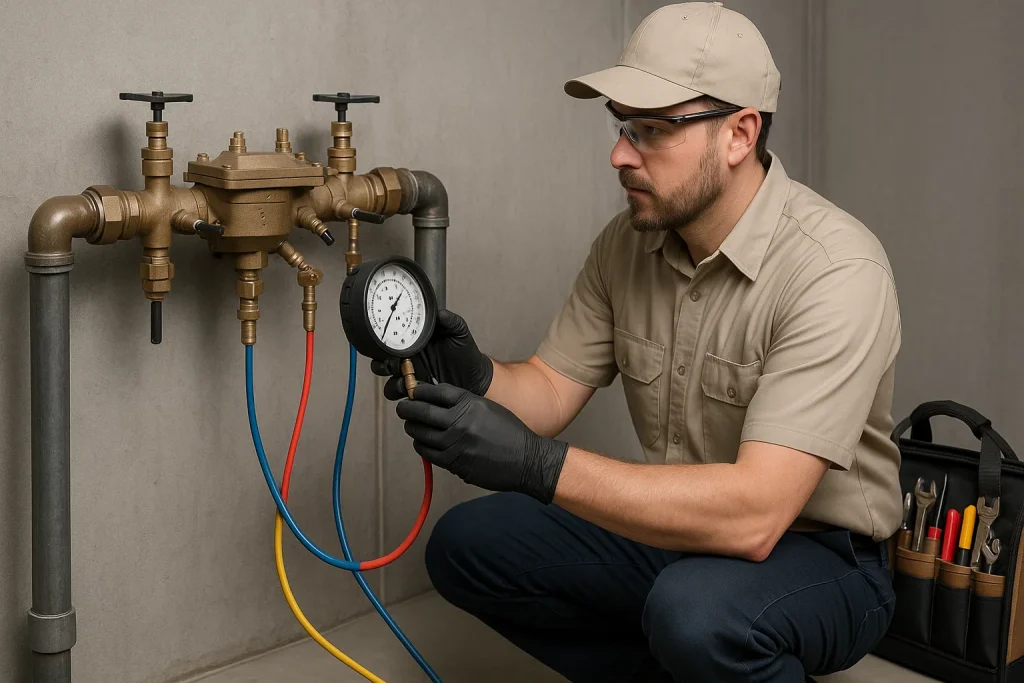At Performance Plumbing, we prioritize the safety and efficiency of your plumbing system. One key component of this is understanding backflow prevention. This blog will explain what backflow is, why it matters, the testing requirements and tools involved, and how local regulations ensure compliance, all while keeping your water supply safe and your system running smoothly.

What Is Backflow and Why Does It Matter?
Backflow occurs when water flows in the reverse direction from its intended path, potentially allowing contaminants to enter the clean water supply. This can happen due to pressure changes, such as during a water main break or heavy water usage nearby. Contaminated water entering the potable water system poses serious health risks, making backflow prevention devices critical for both residential and commercial properties.
Backflow preventers, such as check valves or reduced pressure zone devices, are installed to stop this reverse flow. These devices ensure that water moves only in the intended direction, protecting public health and maintaining water quality. Regular testing and maintenance of these devices are essential to ensure they function properly and prevent costly contamination issues.
Backflow Testing Requirements and Tools
To keep your plumbing system compliant and safe, backflow prevention devices typically require annual testing. This ensures they are working correctly and can effectively block reverse water flow. At Performance Plumbing, our certified technicians use specialized tools like differential pressure gauges and test kits to evaluate the performance of backflow preventers. These tools measure pressure differences and check components like check valves and relief valves to confirm they meet safety standards.
The testing process involves a thorough inspection of the device, followed by a detailed report submitted to local authorities to verify compliance. Failing to test your backflow preventer can lead to fines, water service interruptions, or even contamination risks. By scheduling regular tests, you protect your property and avoid unnecessary expenses.
Understanding Local Regulations
Local regulations play a vital role in backflow prevention, as they set standards to protect public water supplies. While requirements vary by area, most jurisdictions mandate that backflow prevention devices be installed on properties with potential contamination risks, such as those with irrigation systems or commercial setups. Annual testing by a licensed professional is often required, and only certified technicians, like those at Performance Plumbing, can perform these tests to ensure accuracy.
Compliance with local regulations not only avoids penalties but also contributes to community safety. Non-compliance can result in fines or mandatory system upgrades, which can be costly. Staying informed about your area’s requirements and scheduling regular testing keeps your system in line with regulations and ensures peace of mind.
Why Testing Saves You Money
Regular backflow testing is more than just a regulatory requirement—it’s a cost-saving measure. By identifying issues like worn seals or debris buildup early, you can prevent major repairs or replacements. A well-maintained backflow preventer extends the lifespan of your plumbing system and avoids emergency costs. At Performance Plumbing, we provide detailed reports after testing, giving you clear insights to maintain your system efficiently.
Contact Performance Plumbing today to schedule your backflow prevention test. Our certified team is ready to help you keep your plumbing system safe, efficient, and compliant.
